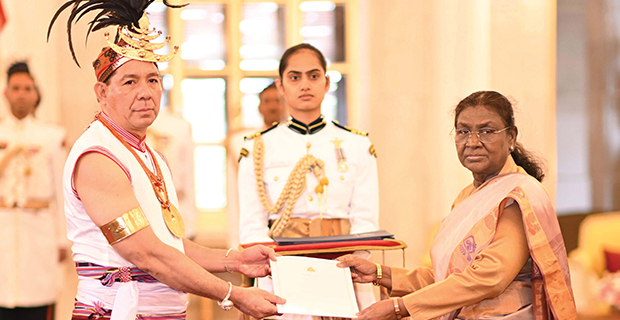“TIMOR-LESTE AND INDIA DEEPEN RELATIONSHIP”
H.E. Mr Karlito Nunes, Ambassador of Timor-Leste to India, speaks with Bula Devi, Consulting Editor (International Affairs), India Empire, against the backdrop of steadily growing bilateral ties. Their discussion highlights trade, ASEAN integration, investment opportunities, and cultural linkages that bind the two nations.
How would you describe the current state of relations between Timor-Leste and India and what areas hold the greatest promise for future cooperation?
Timor-Leste and India established diplomatic relations in 2003. Since then many high dignitaries have visited India from Timor-Leste and vice versa. In August 2024, Hon’ble President of India, Smt. Droupadi Murmu, paid a historical visit to Timor-Leste, the first by an Indian President.
In 2024, India’s exports to Timor-Leste amounted to USD 47.8 million. India’s main exports include rice, sugar and confectionery products, and pharmaceutical goods, while imports from Timor-Leste remain minimal.
The MBBS programme is a major highlight, with over 300 medical students already studying in Timor-Leste, and a second batch of about 600 expected this year. The course runs for four to five years, creating vital capacity in healthcare.
Both countries have signed several MoUs in IT (establishing an IT centre in Dili in partnership with the National University), healthcare and public health, cultural exchange, broadcasting, and reciprocal visas for diplomatic and service passport holders.
Looking forward, cooperation can expand in:
- Trade diversification: boosting Timor-Leste’s exports in coffee, coconuts, copra, and betel nuts.
- Capacity building & education: leveraging India’s expertise in IT, skills, and vocational training.
- Healthcare: training, telemedicine, and access to affordable medicines.
- Renewable energy and infrastructure: solar, wind, and sustainable infrastructure.
- Culture and people-to-people links: arts, heritage, and media collaboration.
While trade remains one-sided, political goodwill and MoUs provide a strong foundation for balanced and diversified ties.
Timor-Leste recently joined ASEAN. How does this impact its relationship with India, given India’s strong “Act East” policy?
I would like to extend my profound gratitude to the government and the people of India for their support to Timor-Leste to join the ASEAN. As ASEAN is central to India’s Act East Policy and Indo-Pacific Vision, Timor-Leste’s inclusion adds a new dimension to India–ASEAN relations.
For Timor-Leste, ASEAN membership enhances regional integration, trade, and investment flows, and strengthens collective security. For India, it provides a gateway to engage with one of Southeast Asia’s youngest nations, aligning with its interest in a free, open, and inclusive Indo-Pacific.
India’s ongoing projects in capacity building, IT, and health in Timor-Leste will also gain greater visibility and scale within ASEAN frameworks, making Timor-Leste a bridge between India and the region’s emerging opportunities.
What are the priority sectors in Timor-Leste’s economic development, and how can Indian businesses engage with them?
Priority sectors for Timor-Leste include agriculture and fisheries (with value addition), tourism, SMEs, and energy—especially oil and gas linked to the Greater Sunrise development. Other focus areas are digital/IT, healthcare, and basic infrastructure, in line with the IX Constitutional Government’s strategy for economic diversification and job creation.
Indian companies can contribute through FDI, PPPs, and technology transfer. Foreign Office Consultations will provide a platform to match projects in Timor-Leste with India’s capabilities. Fast-track opportunities lie in fisheries boats, check-dams, health services, and the IT Centre at the National University in Dili.











Comments.